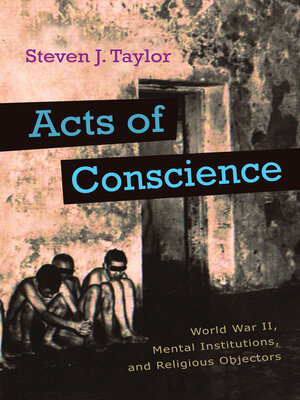Acts of Conscience
ebook ∣ World War II, Mental Institutions, and Religious Objectors · Critical Perspectives on Disability
By Steven J. Taylor

Sign up to save your library
With an OverDrive account, you can save your favorite libraries for at-a-glance information about availability. Find out more about OverDrive accounts.
Find this title in Libby, the library reading app by OverDrive.



Search for a digital library with this title
Title found at these libraries:
| Library Name | Distance |
|---|---|
| Loading... |
In the mid- to late 1940s, a group of young men rattled the psychiatric establishment by beaming a public spotlight on the squalid conditions and brutality in our nation's mental hospitals and training schools for people with psychiatric and intellectual disabilities. Bringing the abuses to the attention of newspapers and magazines across the country, they led a reform effort to change public attitudes and to improve the training and status of institutional staff. Prominent Americans, such as Eleanor Roosevelt, ACLU founder Roger Baldwin, author Pearl S. Buck, actress Helen Hayes, and African-American activist Mary McLeod Bethune, supported the efforts of the young men.
These young men were among the 12,000 World War II conscientious objectors who chose to perform civilian public service as an alternative to fighting in what is widely regarded as America's "good war." Three thousand of these men volunteered to work at state institutions where they discovered appalling conditions. Acting on conscience a second time, they challenged America's treatment of its citizens with severe disabilities. Acts of Conscience brings to light the extra-ordinary efforts of these courageous men, drawing upon extensive archival research, interviews, and personal correspondence.
The World War II conscientious objectors were not the first to expose public institutions, and they would not be the last. What distinguishes them from reformers of other eras is that their activities have faded from the professional and popular memory. Taylor's moving account is an indispensable contribution to the historical record.







